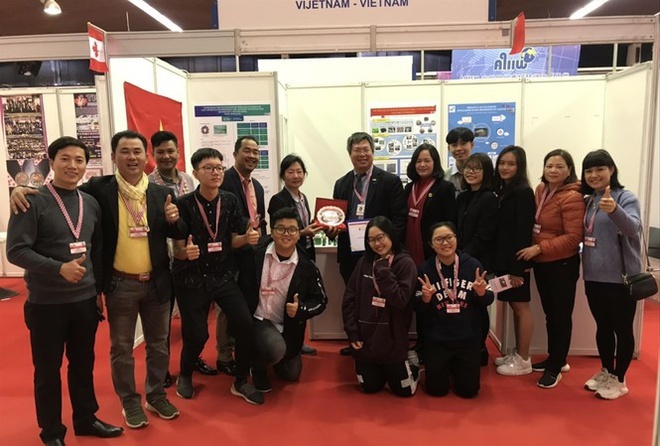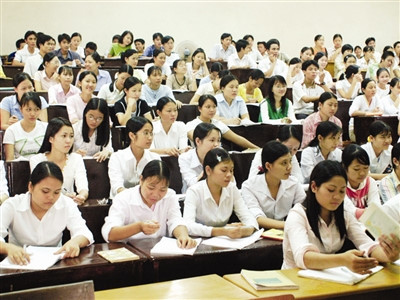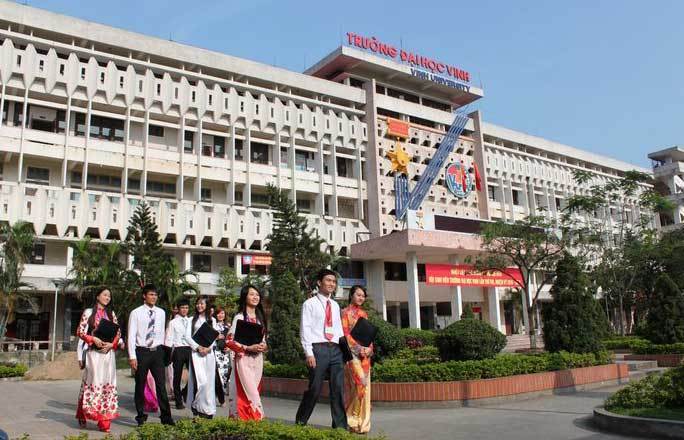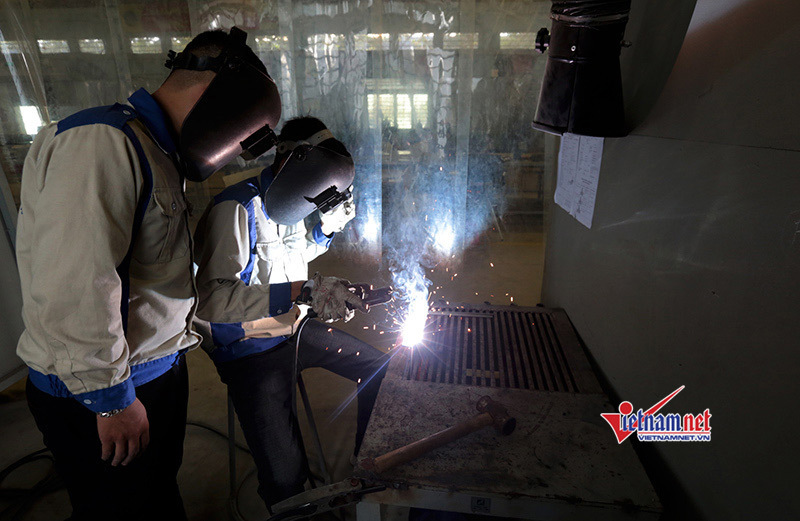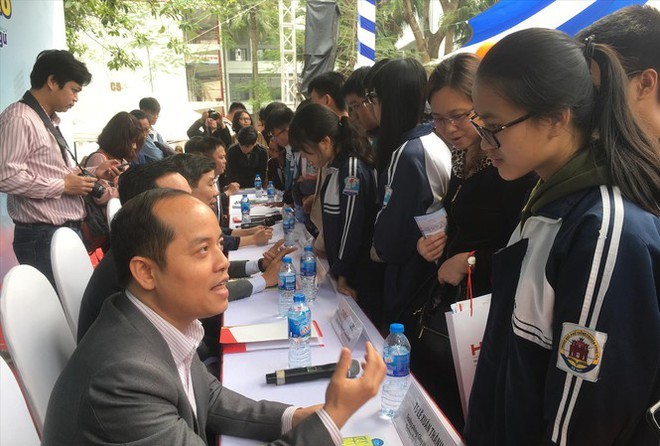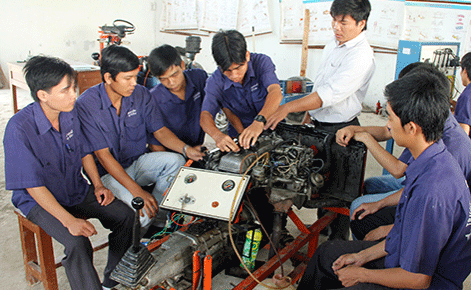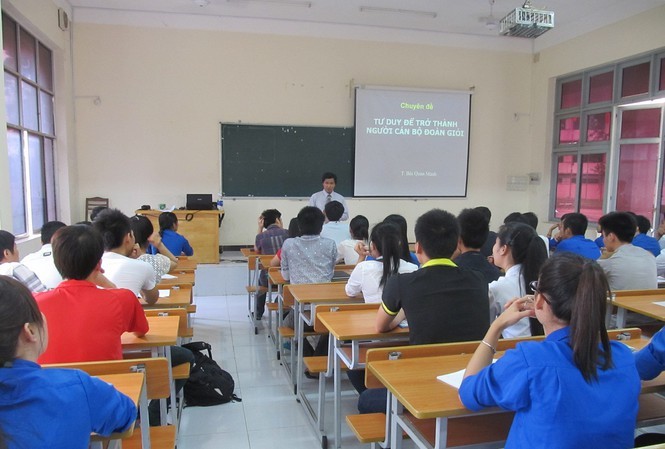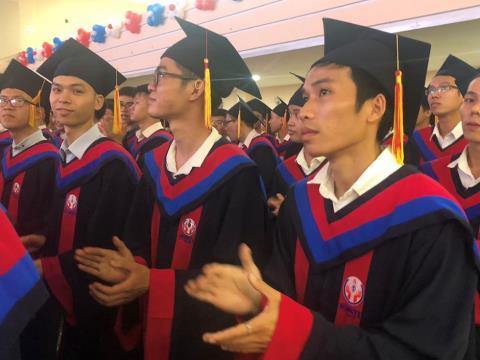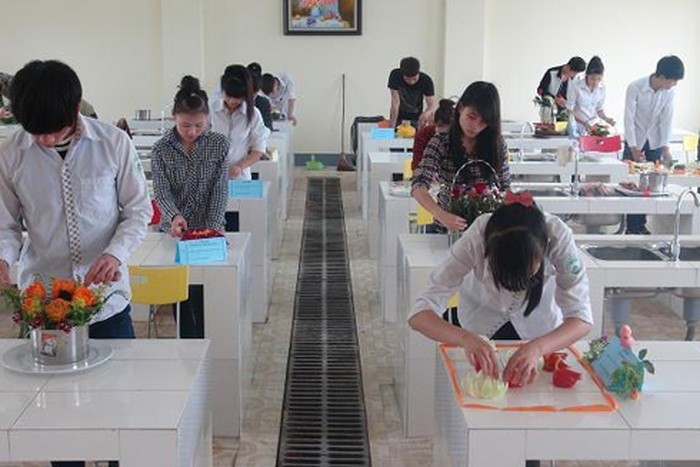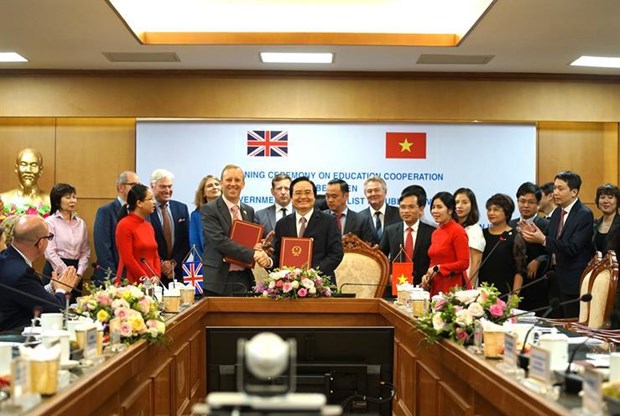- © Copyright of Vietnamnet Global.
- Tel: 024 3772 7988 Fax: (024) 37722734
- Email: evnn@vietnamnet.vn
higher education
Update news higher education
International competitions put pressure on VN students
 There are at least 16 national and international competitions in math for students from the first to the 12th grades. Many of them are believed to be useless.
There are at least 16 national and international competitions in math for students from the first to the 12th grades. Many of them are believed to be useless.
Hanoi to have another international university
 The university will become an international innovation center of the Vietnam National University, Hanoi.
The university will become an international innovation center of the Vietnam National University, Hanoi.
Student streamlining – a must in 4.0 era
 Career guidance is believed to be important in the new era which aims to create human resources who meet the changing requirements of the labor market.
Career guidance is believed to be important in the new era which aims to create human resources who meet the changing requirements of the labor market.
Vietnam's educational sector to see more M&A deals
 M&A has been and will continue to be the major investment trend in Vietnam’s educational sector in the time to come, according to Troy Griffiths, deputy CEO of Savills Vietnam.
M&A has been and will continue to be the major investment trend in Vietnam’s educational sector in the time to come, according to Troy Griffiths, deputy CEO of Savills Vietnam.
Big money poured into higher education sector
 Nguyen Hoang Group has become well known as the biggest private investor in the education sector.
Nguyen Hoang Group has become well known as the biggest private investor in the education sector.
VN higher education is profitable sector for investors
 As Vietnamese are spending more money on their children’s education, higher education in Vietnam has proven to be a lucrative business.
As Vietnamese are spending more money on their children’s education, higher education in Vietnam has proven to be a lucrative business.
In Vietnam, unemployment rate among higher education graduates is higher than others
 Between 70 and 80 percent of the unemployed are junior college (3-year training) or university (4-5 year training) graduates.
Between 70 and 80 percent of the unemployed are junior college (3-year training) or university (4-5 year training) graduates.
What educational model does Vietnam need in the 4.0 era?
 Vietnamese education is struggling to find an educational philosophy.
Vietnamese education is struggling to find an educational philosophy.
RMIT Vietnam appoints new Chairman
 Experienced leader and academic, Professor Peter Coloe, has been appointed RMIT Vietnam Chairman.
Experienced leader and academic, Professor Peter Coloe, has been appointed RMIT Vietnam Chairman.
VN education startups receive millions of US dollars worth of investments
 Startup projects in the education sector have attracted huge investments from international venture funds.
Startup projects in the education sector have attracted huge investments from international venture funds.
How much money do elite schools in Vietnam need to produce talented students?
 VinUni stunned the public when announcing the sky-high training costs of $35,000 a year for university education and $40,000 a year for post-graduate studies.
VinUni stunned the public when announcing the sky-high training costs of $35,000 a year for university education and $40,000 a year for post-graduate studies.
Should there be common standards for university graduates?
 Higher education establishments all have announced their standards for graduates.
Higher education establishments all have announced their standards for graduates.
Shortage of skilled workers a big challenge for Vietnam
 The lack of skilled workers is a big challenge to enterprises globally, including Vietnam.
The lack of skilled workers is a big challenge to enterprises globally, including Vietnam.
Do all new engineer graduates in Vietnam need to undergo retraining?
 A survey conducted at Japanese-invested enterprises found that 100 percent of new engineering graduates in Vietnam have to be retrained for one or two years to satisfy requirements of enterprises.
A survey conducted at Japanese-invested enterprises found that 100 percent of new engineering graduates in Vietnam have to be retrained for one or two years to satisfy requirements of enterprises.
Non-state education remains small part of VN national system
 State-invested education remains the backbone of the national education system, though Vietnam has been calling for investment from different sectors for many years.
State-invested education remains the backbone of the national education system, though Vietnam has been calling for investment from different sectors for many years.
New policy raises concerns about higher education quality in Vietnam
 Education experts have warned that new policies would lead to the mass production of bachelor’s and master’s degree holders.
Education experts have warned that new policies would lead to the mass production of bachelor’s and master’s degree holders.
Vietnam lacks workers with vocational training skills
 Vocational schools complain they are finding it difficult to enroll learners despite attractive job opportunities.
Vocational schools complain they are finding it difficult to enroll learners despite attractive job opportunities.
Vietnam, UK sign MoU on educational cooperation
 A Memorandum of Understanding (MoU) on educational cooperation between the governments of Vietnam and the United Kingdom was signed in Hanoi on October 3.
A Memorandum of Understanding (MoU) on educational cooperation between the governments of Vietnam and the United Kingdom was signed in Hanoi on October 3.
Does Vietnam's TV show "Road to Olympia" help provide talents for Australia?
 Most of the winners of ‘Road to Olympia’ leave Vietnam for Australia where they study and stay after graduating.
Most of the winners of ‘Road to Olympia’ leave Vietnam for Australia where they study and stay after graduating.
Australian project attracts students to study in Vietnam
 Dr Tran Thi Ly is one of the 50 most influential women in Vietnam in the field of science anf education recognized by Forbes Magazine.
Dr Tran Thi Ly is one of the 50 most influential women in Vietnam in the field of science anf education recognized by Forbes Magazine.
